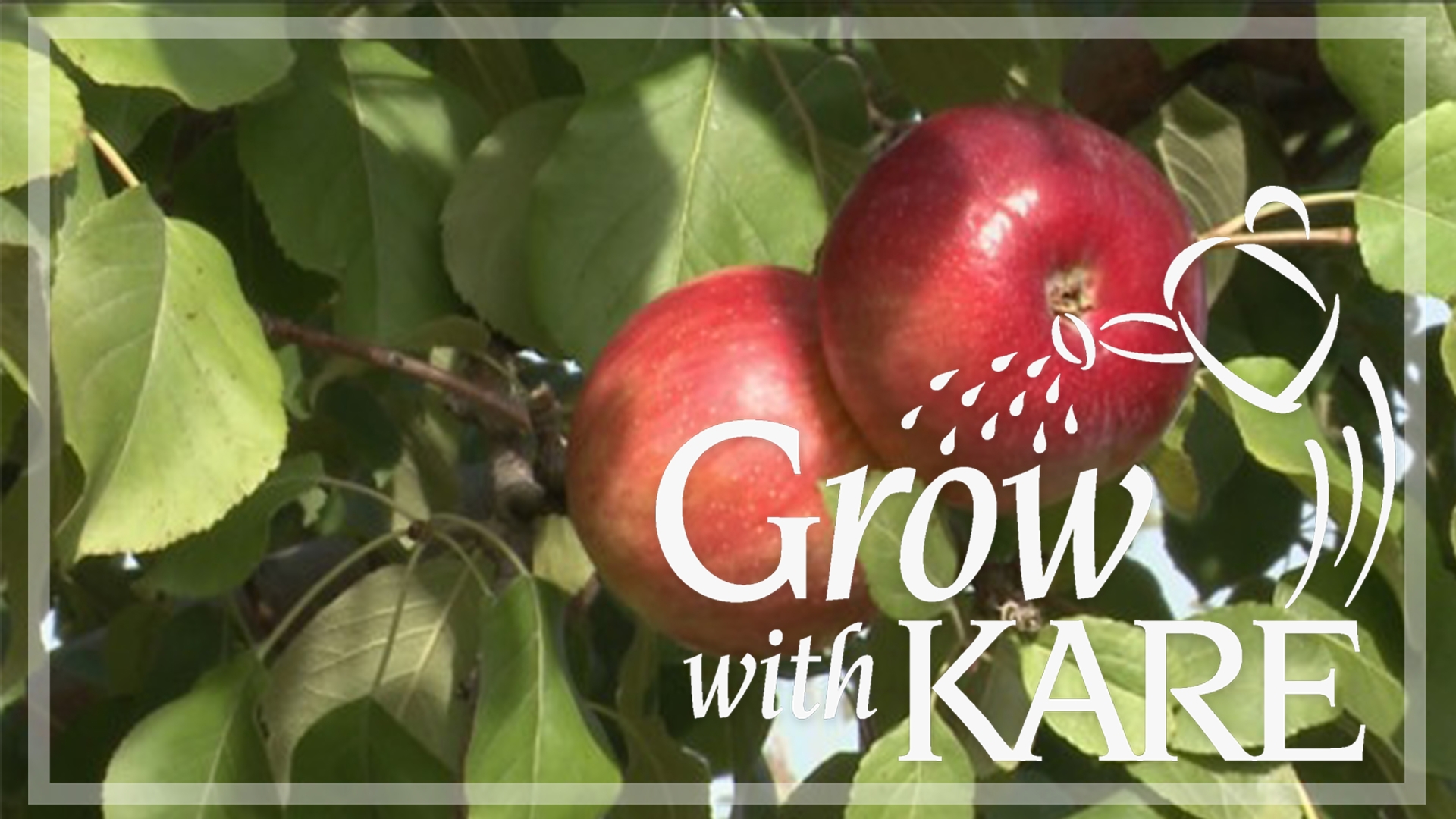MINNEAPOLIS — If you have honeycrisp trees in your yard, you might have found out that it’s not the easiest apple tree to grow. Turns out everyone’s favorite apple gives even commercial growers some trouble.
Honeycrisp is difficult to grow when the goal is a regular crop of healthy fruit, says Annie Klodd, the Minnesota Landscape Arboretum’s manager of interpretation and visitor learning and a former fruit educator with the University of Minnesota Extension.
“What I say to the general gardener is, ‘If you want the crunch of a Honeycrisp without tearing your hair out, plant a Triumph,’” Klodd said.
If you have a struggling Honeycrisp in your yard, you may have noticed two issues:
Bitter pit: Honeycrisp suffers from a nutrient disorder in which calcium in the leaves doesn’t get to the fruit, no matter how much calcium is in the soil or the plant. The result is dimples in the skin that result in the appearance of bruises in the fruit flesh.
“It’s difficult for commercial and it’s almost impossible for a home grower to manage,” Klodd said.
Biennial bearing. Honeycrisp naturally bears its fruit every other year, which can be frustrating for home gardeners.
“Commercial growers apply a special hormone to encourage thinning to make sure the tree doesn’t waste all its energy in one year,” Klodd said. “The home gardener can’t get their hands on these thinners.”
Instead, David Bedford, apple breeder with the University of Minnesota suggests growing Triumph. Triumph is the offspring of Honeycrisp and an apple called Liberty. Both parent varieties offer resistance to a disease called apple scab, which is very common in Minnesota.
When it comes to taste, Bedford still puts Honeycrisp at the top of the list, but Triumph is a close second with a good crisp texture and a flavor that is slightly more tangy than sweet.
Reasons to choose Triumph over Honeycrisp:
1: It’s better for commercial growers and homeowners because they don’t need to spray to treat apple scab.
2: It’s better for eaters of the apples who don’t have to consume any residual sprays.
3: It’s better for the environment because of less use of pesticides on the earth.
A Triumph!
Watch more of Grow with KARE:
Watch the latest gardening tips and tricks in our YouTube playlist and don't forget to join the Grow with KARE Facebook group:

